When your child is sick all you want is a medicine that will make everything better. Unfortunately, when it comes to viruses, like those that cause colds or influenza (the flu), antibiotics don’t work. Read on to find out why, and to see what else you can do.
What are antibiotics?
Antibiotics were discovered by Alexander Fleming in 1928 and are widely credited as one of the most important medical discoveries in human history.
Antibiotics treat infections caused by bacteria. Bacteria are very small organisms, and billions of them live in and on your body. Most of the time these bacteria are harmless or even helpful for your body. For example, bacteria in your gut help you to digest food. But some bacteria can cause diseases.
There are two types of antibiotics. Your doctor will choose different antibiotics to treat different bacteria. One kind slow down the growth of bacteria and damage their ability to reproduce and spread. The other kind kill the bacteria by destroying the bacteria cell walls.
Viruses vs bacteria
Viruses are different to bacteria. Bacteria attack your cells from the outside of the cell. However, viruses actually move into, and live inside your cells. Viruses can’t reproduce on their own, like bacteria do. Instead, virus cells will latch onto your healthy cells and use those cells to reproduce.
Viruses and bacteria also have a different structure and a different way of surviving. Viruses are surrounded by a protective protein coating; they don’t have cell walls that can be attacked by antibiotics like bacteria does. It is because of this that antibiotics don’t work on viruses.
Can’t I take antibiotics ‘just in case’?
Taking antibiotics when they aren’t needed actually increases the risk that bacteria become resistant to antibiotics. See, like any living organism, bacteria evolve to adapt to changing environments. If exposed to antibiotics enough, bacteria could evolve to become resistant. Doctors and medical experts see this as a big potential problem, because it increases the chances that harmful bacteria can no longer be treated, making us all more vulnerable.
Taking antibiotics when you don’t need them is also a waste and puts you at risk of side effects. This could mean a rash, upset stomach or diarrhea.
So what can I do about my cold or flu?
You might’ve heard your doctor use the phrase that a virus has to ‘run its course’. This means waiting for your body’s immune system to fight off the viral infection by itself by activating an immune response.
While a virus runs its course there are ways you can speed it up or make it less severe. Getting plenty of bed rest, drinking lots of fluids (particularly water) and taking over-the-counter medication to relieve symptoms will help. This is generally enough for otherwise healthy people. However, in some cases, your doctor may prescribe antiviral medications to help reduce the severity and length of your illness. This is most effective at the onset of a virus.
If you have a cold or the flu, you should visit your doctor if you have more serious symptoms, such as trouble breathing, chest pain, a sore throat that hurts to swallow, a cough, headaches, sinus pain, persistent vomiting (which stops you from keeping fluids down), fever, feelings of confusion or colored phlegm.
There are also steps you should take to protect others. If you have a cold, flu or virus, stay at home and avoid contact with others. This means no work, no school and no day care. Wash your hands regularly with soap and water, or you could use an alcohol-based hand sanitizer. Make sure you cover your coughs and sneezes with a tissue or a flexed elbow. Stay 6 feet away from others, so you don’t spread germs.
Be proactive, get a vaccination
If you’ve had the flu, you know it isn’t fun. You can help protect yourself from the flu by getting a flu vaccine. The flu vaccine changes every year, so it is important to get a new one before winter each year.
If you have questions, please give us a call at 912-871-4847.
Source: https://vaccinate.initiatives.qld.gov.au/why-antibiotics-cant-be-used-to-treat-viruses-colds-or-the-flu/

